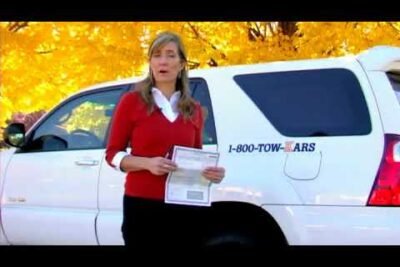
- Unlock Tax Benefits: How Donating Your Car to Charity Pays Off
- Top Charities for Car Donations: Make a Difference Today!
- Where Do Donated Cars Go? Discover Their Impact and Journey
Understanding Car Donation and Its Benefits
Donating a car to charity is a generous act that can provide numerous benefits both to the donor and the recipient organization. When you donate a vehicle, you not only support a cause you believe in but also potentially qualify for a maximum tax deduction. This section will explore the various advantages of car donation and how it can positively impact your finances and the community.
Definition of Car Donation
Car donation involves giving a vehicle you no longer need to a charitable organization. The charity can then use the car for its operations, sell it to raise funds, or provide it to someone in need. This act of giving can make a significant difference in the lives of others and support the charity's mission.
Overview of Charitable Contributions
Charitable contributions, including car donations, are a way for individuals to support nonprofit organizations. These contributions can be in the form of cash, goods, or services. When you donate a car, it is considered a non-cash contribution, which can qualify for a tax deduction if certain conditions are met.
Benefits of Donating a Car
There are several benefits to donating a car, including:
- Tax Deductions: One of the most significant benefits is the potential for a tax deduction. By donating a car, you can reduce your taxable income, which can result in lower tax liability.
- Supporting a Cause: Donating a car allows you to support a cause you care about. Whether it's education, health, or environmental sustainability, your donation can make a meaningful impact.
- Environmental Impact: Donating a car can also have positive environmental effects. By recycling and reusing vehicles, you help reduce waste and promote sustainability.
Maximum Tax Deduction for Car Donation
To achieve the maximum tax deduction for your car donation, it's crucial to understand the IRS rules and regulations that govern charitable contributions. This section will provide a detailed explanation of how to maximize your tax benefits and ensure you comply with IRS requirements.
Explanation of Tax Deductions Related to Car Donations
When you donate a car to a qualified charity, you may be eligible for a tax deduction based on the vehicle's fair market value (FMV) or the gross proceeds from its sale. The IRS allows taxpayers to claim a deduction for the lesser of the FMV or the amount the charity sells the car for. However, if the charity uses the car for its operations, you may be able to deduct the FMV.
How the IRS Defines "Maximum Tax Deduction"
The IRS defines the maximum tax deduction for car donations based on specific criteria. To qualify for the highest deduction, the charity must be a tax-exempt organization, typically a 501(c)(3) entity. Additionally, you must itemize your deductions on your tax return and provide the necessary documentation.
Importance of Donating to a Qualified Charity
To ensure you receive the maximum tax deduction for your car donation, it's essential to donate to a qualified charity. The charity must be recognized by the IRS as a tax-exempt organization. Donating to a non-qualified charity will not qualify you for a tax deduction.
Choosing the Right Charity for Your Car Donation
Selecting the right charity is a critical step in maximizing your tax deduction for car donation. This section will guide you through the criteria for choosing a qualified charity and how to verify its tax-exempt status.
Criteria for Selecting a Charity
When choosing a charity for your car donation, consider the following criteria:
- IRS Tax-Exempt Status (501(c)(3)): Ensure the charity is recognized by the IRS as a tax-exempt organization under section 501(c)(3).
- Charity's Mission and Impact: Research the charity's mission and how it uses donations. Choose a charity whose goals align with your values and interests.
How to Verify a Charity’s Status
To verify a charity's tax-exempt status, you can:
- Using the IRS Search Tool: The IRS provides an online tool called the Exempt Organizations Select Check, where you can search for qualified charities.
- Requesting IRS Recognition Letters: You can also request a copy of the charity's IRS recognition letter, which confirms its tax-exempt status.
Steps to Ensure Maximum Tax Deduction
To ensure you receive the maximum tax deduction for your car donation, it's essential to follow specific steps and gather the necessary documentation. This section will outline the process and requirements to help you maximize your tax benefits.
Preparing for the Donation Process
Before donating your car, take the following steps:
- Assessing Your Vehicle's Condition: Evaluate the condition of your car to determine its fair market value. This assessment will help you understand the potential tax deduction you can claim.
- Researching the Charity’s Vehicle Donation Program: Investigate how the charity handles vehicle donations. Some charities refurbish and use the cars, while others sell them to raise funds.
Documentation Needed for Tax Deductions
To claim a tax deduction for your car donation, you must provide specific documentation, including:
- Written Acknowledgment from the Charity: Obtain a written acknowledgment from the charity, which includes details about the car and the donation date.
- IRS Form 1098-C: If the car is sold for more than $500, the charity must provide you with IRS Form 1098-C, which includes the sale price.
- IRS Form 8283: For deductions over $500, you must complete IRS Form 8283 and attach it to your tax return.
Fair Market Value (FMV) Assessment
Determining the fair market value (FMV) of your donated car is a crucial step in maximizing your tax deduction. This section will explain what FMV is and how to accurately assess it.
Definition of Fair Market Value
Fair market value is the price a willing buyer would pay a willing seller for the car, considering its condition and other relevant factors. The IRS requires that you use FMV to determine the value of your car donation.
Methods to Determine FMV
Several methods can help you determine the FMV of your car, including:
- Kelley Blue Book: This online resource provides estimated values for used cars based on make, model, year, and condition.
- Edmunds: Another reputable source for car valuations, Edmunds offers tools to assess your vehicle's worth.
- NADA Guides: The National Automobile Dealers Association (NADA) provides valuation guides for used cars.
How FMV Affects Your Tax Deduction
The FMV of your car directly impacts the amount you can deduct on your taxes. If the charity sells the car, your deduction is limited to the sale price. However, if the charity uses the car, you can deduct the FMV.
Understanding IRS Rules and Regulations
Complying with IRS rules and regulations is essential to ensure you receive the maximum tax deduction for your car donation. This section will provide an overview of the key IRS guidelines and how they affect your tax benefits.
Overview of IRS Guidelines for Car Donations
The IRS has specific rules for car donations, including requirements for documentation and valuation. Understanding these guidelines will help you navigate the donation process and maximize your tax benefits.
Tax Deduction Limits Based on Vehicle Value
The amount you can deduct for your car donation depends on the vehicle's value and how the charity uses it. The IRS sets different limits based on these factors:
- Deductions for Vehicles Sold Under $500: If the charity sells the car for less than $500, you can deduct the lesser of the FMV or $500.
- Deductions for Vehicles Sold Over $500: If the car is sold for more than $500, you can deduct the exact sale amount.
Importance of Itemizing Deductions on Tax Returns
To claim a tax deduction for your car donation, you must itemize your deductions on your tax return. This means listing all your eligible deductions, including charitable contributions, instead of taking the standard deduction.
Common Pitfalls to Avoid
Donating a car can be a straightforward process, but there are common pitfalls that can reduce your tax benefits. This section will highlight these pitfalls and provide tips on how to avoid them.
Donating to Non-Qualified Charities
One of the most common mistakes is donating to a charity that is not recognized by the IRS as tax-exempt. Always verify the charity's status before making a donation.
Failing to Obtain Proper Documentation
Proper documentation is crucial for claiming a tax deduction. Ensure you receive a written acknowledgment from the charity and the necessary IRS forms.
Misestimating the Vehicle's Value
Accurately assessing your car's value is essential for maximizing your tax deduction. Use reputable sources like Kelley Blue Book, Edmunds, and NADA Guides to determine the FMV.
Ignoring IRS Deadlines for Deductions
The IRS has specific deadlines for claiming tax deductions. Ensure you complete and submit all required forms by the due date to avoid missing out on your deduction.
Frequently Asked Questions (FAQs)
What is the maximum tax deduction for car donation?
The maximum tax deduction for car donation depends on the vehicle's value and how the charity uses it. If the car is sold, the deduction is limited to the sale price. If the charity uses the car, you can deduct the fair market value.
How do I determine the value of my donated car?
You can determine the value of your donated car using resources like Kelley Blue Book, Edmunds, and NADA Guides. These tools provide estimated values based on the car's make, model, year, and condition.
What documentation do I need for tax deductions?
To claim a tax deduction for your car donation, you need a written acknowledgment from the charity, IRS Form 1098-C if the car is sold for more than $500, and IRS Form 8283 for deductions over $500.
Can I donate a car that is not in working condition?
Yes, you can donate a car that is not in working condition. Many charities accept non-working vehicles and either repair them or sell them for parts.
How does the donation process work?
The donation process typically involves contacting a charity, providing details about your car, arranging for the car to be picked up or dropped off, and receiving the necessary documentation for your tax deduction.
Donating your car can be a rewarding way to support a cause you care about while also benefiting from a significant tax deduction. By understanding the IRS rules and regulations, choosing the right charity, and following the necessary steps, you can maximize your tax benefits and make a meaningful impact. Take action today and consider donating your vehicle to a qualified charity.
Additional Resources
- Links to IRS publications on car donations
- Recommended charity organizations for vehicle donations
- Tools for assessing vehicle value
FAQs
What are the tax implications of donating a car?
Donating a car can reduce your taxable income, resulting in lower tax liability. The deduction amount depends on the car's value and how the charity uses it.
How can I ensure my donation benefits the charity?
To ensure your donation benefits the charity, choose a reputable organization with a clear mission and impact. Verify the charity's tax-exempt status and research how they use vehicle donations.
Are there any costs associated with donating my car?
Most charities cover the cost of towing and processing the donation. However, it's essential to confirm this with the charity before donating your car.
References
- How to donate your vehicle so everybody wins - Britannica
- 2024 Car Donation Tax Deduction Information
- How to donate a used car, and what that gift means for your taxes
- How To Get A Tax Deduction For Donating A Car To Charity
- How Do I Estimate the Value of My Donated Car for My Tax Deduction?
- Understanding Car Donation Tax Deduction IRS Rules
- Donating a car to charity
- Car Donation Tax Deduction
- How do you actually go about donating a car and getting...
Si quieres conocer otros artículos parecidos a Maximize Your Tax Deduction with Car Donation Benefits Today puedes visitar la categoría Car donation.
Leave a Reply
You must be logged in to post a comment.







Related posts